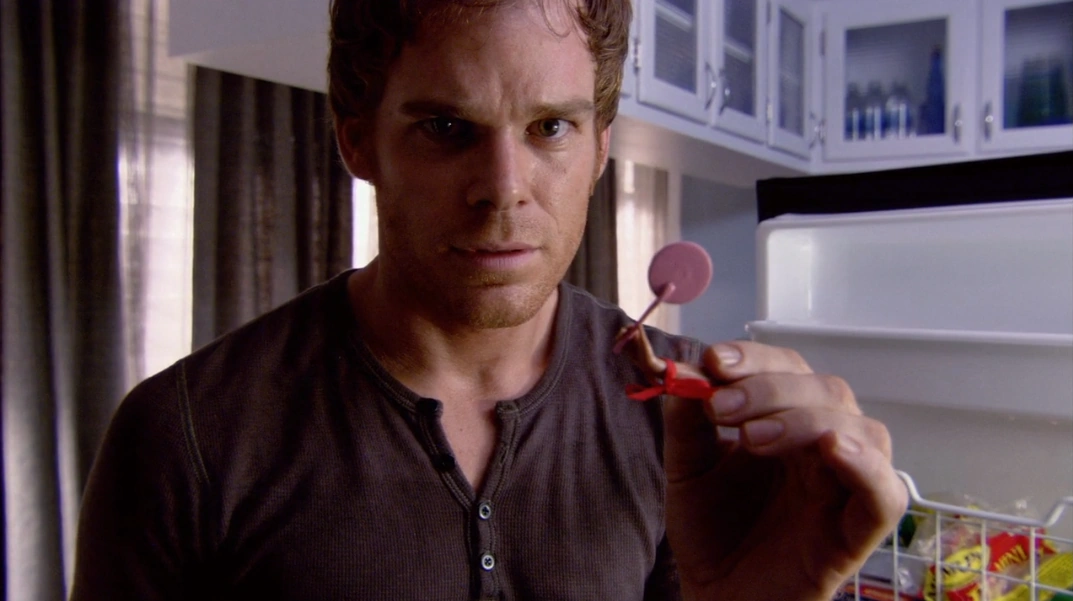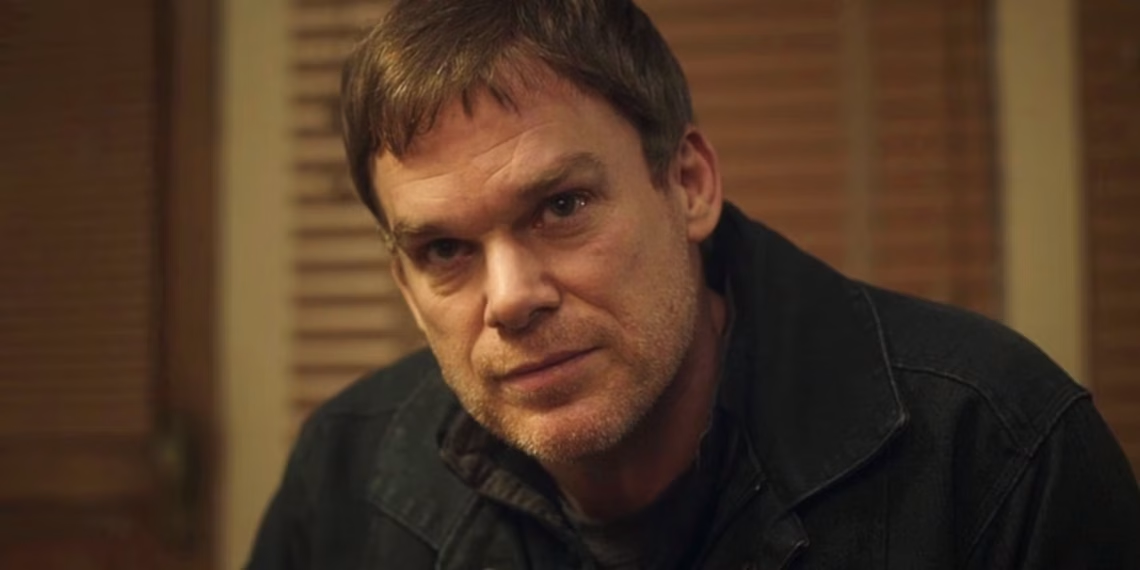On October 1, 2006, a character named Dexter Morgan (played by Michael C. Hall) captured the attention of viewers worldwide. Dexter wasn’t your typical serial killer. By day, he worked as a blood spatter analyst for the Miami Metro Police Department, often bringing his colleagues donuts. However, by night, Dexter turned into a vigilante, hunting down killers and violent criminals who escaped justice.
Dexter quickly became one of Showtime’s most popular shows, setting viewership records. Its success sparked a wave of similar narratives in the following years, including Hannibal, Mindhunter, and True Detective. However, none of these shows quite matched the magnetic character of Dexter Morgan, who followed a unique moral code as he carried out his vigilantism.
Dexter Ending Explained

The story behind Dexter’s dark nature starts when he was just a child. At the age of two, Dexter witnessed his mother’s brutal murder by a cartel boss, who hacked her apart with a chainsaw. This trauma seemed to shape Dexter into the person he would become. Initially, it appeared that this event set him on his path as both a forensic analyst and a serial killer.
Harry Morgan, Dexter’s adoptive father, realized early on that his son was lacking in emotional empathy, possibly even showing psychopathic tendencies. After Dexter killed neighborhood pets, Harry decided to teach him a code of conduct to prevent Dexter from getting caught. This code ensured that Dexter would only target individuals who deserved to die. Harry’s law enforcement background came in handy in evaluating these targets.
Revelations and Harry’s Role
As the series progressed, Dexter’s backstory grew even more complex. It was revealed that Harry had collaborated with criminal psychiatrist Dr. Evelyn Vogel, who had developed the code that Harry applied to Dexter. Harry’s decision to use Dexter as a test case brought a heavy burden on him, and when he discovered the monster his son had become, Harry took his own life, unable to live with the truth.
Dexter, in turn, learned the truth years later — his father’s death wasn’t from a heart attack but a suicide. Dexter would come to refer to his darker side as his Dark Passenger, a persona that he could never fully escape, no matter how much he tried.
Also Read: Now You See Me Ending Explained: What’s the Secret Behind the Horsemen’s Illusions?
The Psychopath’s Struggle
One of the most compelling aspects of Dexter’s character is his level of self-awareness. While Dexter lacks empathy and struggles with human emotions, he is acutely aware of these limitations. He understands what love and empathy look like in others, even though he doesn’t experience them himself. His struggle to fit in with society and emulate the emotions others feel is what makes him such a fascinating character.
Throughout the series, Dexter grows emotionally, especially in his relationships with those closest to him. This development, however, often leads to unintended harm. His emotional attachments put those around him in danger, and his attempts at justice often result in collateral damage.

Dexter’s Role in the Criminal Justice System
Though Dexter is the central character, his story also sheds light on the flaws within America’s criminal justice system. The show reveals how criminals can escape justice through legal loopholes or expert defense attorneys. Dexter’s role as a vigilante exposes the real-world issues of underreporting and mishandling crimes, particularly in cases of sexual violence.
Dexter often targets sexual predators, such as rapists and spouse killers, highlighting how the justice system fails to bring these offenders to justice. Dexter’s actions suggest that sometimes vigilante justice is the only way for victims to get the justice they deserve. His crusade exposes the inadequacies in the system, where victims can be disbelieved, and evidence such as rape kits often go untested.
The Collateral Damage of Dexter’s Actions
While Dexter’s code aimed to limit harm, it was far from foolproof. His relationships with others—especially those closest to him—became increasingly dangerous as Dexter’s life evolved. His transformation into a family man made him more vulnerable to emotional ties, but it also led to more innocent victims.
One of the most shocking and tragic deaths in the series is that of Dexter’s wife, Rita. Rita becomes an unintended victim of the Trinity Killer, a serial killer Dexter was pursuing. The death, which was a direct result of Dexter’s involvement with the Trinity Killer, left a lasting impact on the series.
The Bay Harbor Butcher
By the second season of Dexter, the world learns about his secret identity as the Bay Harbor Butcher. Dexter had previously been meticulous in hiding his crimes, but when his dumping ground is discovered by divers, the tension surrounding his secret intensifies. Despite his attempts to control the situation, Dexter’s life spirals out of control, leading to more death and mistakes as he struggles with his Dark Passenger. The reveal of the Bay Harbor Butcher marks a turning point in Dexter’s journey, where the collateral damage caused by his vigilante justice becomes impossible to ignore.

Dexter and Revenge as Justice
Throughout the show, Dexter often uses revenge as a form of justice. His quest for justice is particularly evident when he hunts down a group of men who have brutalized women. In one instance, Dexter helps Lumen Pierce, a survivor of the gang, to hunt down the remaining men responsible for the crimes.
Dexter’s actions raise difficult questions about the nature of justice. When law enforcement fails, can revenge be justified? Dexter and Lumen’s pursuit of revenge becomes an emotional journey that highlights the complexities of morality and justice, especially for survivors of traumatic crimes.
Debra Morgan: Dexter’s Conscience
Debra Morgan, Dexter’s adopted sister, plays an essential role in his life. After their father’s death, Debra serves as Dexter’s moral compass, often reminding him of his humanity. Their complicated relationship is made even more complex when Debra discovers the truth about Dexter’s identity. In the end, her tragic fate is sealed when she chooses to protect Dexter at the cost of her own life, cementing her status as the most important woman in Dexter’s life.
Dexter’s Final Days
In the series finale, Dexter’s dream of a happy ending with his son and lover in Argentina is shattered. After causing Debra’s death, Dexter realizes he cannot live a normal life and fakes his death, retreating to a remote cabin in the woods. The ambiguous ending leaves viewers with many questions about Dexter’s future and whether or not he will continue his killing spree in isolation.
Also Read: Black Swan Ending Explained: Did Nina Achieve Perfection or Lose Herself?




